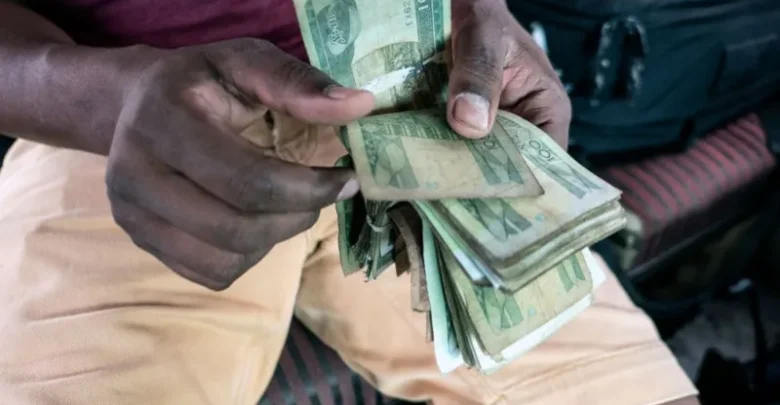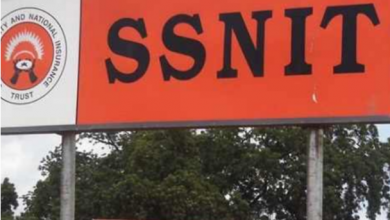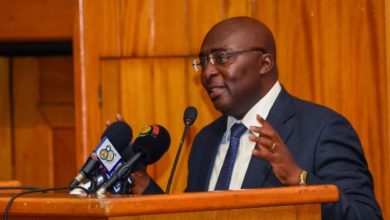InternationalNews
Nigeria’s kidnap crisis: Inside story of a ransom negotiator

A hostage negotiator has told the BBC that paying ransoms may be illegal, yet it is the only way families can guarantee the release of relatives kidnapped by the gangs terrorising swathes of northern Nigeria.
Sulaiman, whose name has been changed to protect his identity, is from Kaduna state, where 280 children were recently abducted from a school in the town of Kuriga.
He has been working informally in this controversial and risky role for several years – since some of his relatives were taken hostage.
“We have to negotiate. You cannot use force to get hostages back. It would put the lives of our loved ones in danger,” he tells the BBC.
Sulaiman first became involved in negotiations with kidnappers, referred to locally as bandits, in 2021 – a year before the payment of ransoms became illegal in Nigeria.
Over the last three years he says he has negotiated the release of more than 200 hostages – a small fraction of the thousands of people abducted over the last decade.
The negotiations take patience – and courage.
“The government believes I have been helping the bandits,” he says, speaking from an undisclosed location.
“The bandits think I have been getting money from the government, so I am also a kidnap target.”
His first negotiation took place as he was trying to raise a ransom of around $12,500 (£9,800) for two of his relatives who had been abducted.
“I did not know what I was doing. I was just speaking with the bandits – and begging them,” he says.
However his patient approach with the gang members worked and in the end his relatives were freed – though he had to sell his farm in his home village to cover the ransom.
When word spread about the successful release, other families who were victims of kidnapping came to him for support. Soon his phone was constantly busy.
“Almost everyone in my village has had a family member kidnapped,” he says, adding that he helps them out free of charge.
And despite the outlawing of ransom payments, people still come to him – desperate for help.
Sulaiman admits that it is a scary position for him to be in: “The government does not like negotiation with the bandits, and can send people to jail for doing that.”
He puts his success down to his appreciation of the root causes of Nigeria’s kidnapping crisis, which he says is fuelled mainly by poverty and high levels of youth unemployment.
Competition for land and resources between cattle herders and farmers has also contributed to the problem. The kidnappers tend to be former herders from the Fulani ethnic group, who target villages where mainly Hausa farmers reside.
“When I speak to the bandits, I understand those people,” he says, adding that the negotiations tend to take place in Hausa, the lingua franca of the mainly Muslim north – though most kidnappers’ mother tongue is Fulfulde, spoken by the Fulani people.
“I tell them that I know that they are living a difficult life in the bush, without electricity. I know that they feel they have been forgotten by the government.”
The gangs are often made up of gunmen on motorbikes who target areas and particular families on the word of paid informants. It is a huge, sophisticated money-making operation.
Around 30,000 bandits in more than 100 gangs operate in north-western Nigeria, according to the Centre for Democracy and Development – a think-tank based in the capital, Abuja.
Sulaiman says the success of his negotiations depends on the leader of the kidnappers: “Some bandits I have dealt with still keep hostages and want more money, even after you have paid the ransom.
“But some of them release the hostages as soon as you pay.”
The process can be arduous, taking up to 50 days to release a hostage and anywhere between 20 and 30 phone calls.
“You have to use soft language. They can be rude and they will insult you but you have to remain calm,” he says.
Despite a shortage of bank notes in Nigeria, the kidnappers demand that ransoms are paid in cash as bank transfers can be easily traced.
Payments are usually delivered by a parent or a relative of one of the abductees, Sulaiman explains.
“The bandit will call them and give them step-by-step directions on how to find them in the bush. Once they reach there, the bandit will count the money, note by note.”
Sometimes the bandits request motorcycles as part of the ransom payment, as well as alcohol and cigarettes.
When another close contact of Sulaiman’s was kidnapped from a university along with other students – before ransom payments became illegal – he says the government paid around $2,370 for each student’s freedom – though there has never been any official confirmation of this.
“The government will never admit on the record they paid [even then] because for them that would be admitting failure. But as insiders we know what happened and we didn’t have that kind of money,” he says.
Sulaiman became involved in those negotiations and says the kidnappers had first demanded around $32,000 for each hostage and were eventually bargained down.
These days with villagers left to foot the bill, few people can afford to raise the cash for ransoms. They often turn to crowd-funding for the money, though this is now also proving difficult given how the insecurity has devastated the economy.
Bandits have been known to either kill hostages or release them when there is no hope of payment.
Sulaiman thinks the spate of recent mass abductions from schools, and the threat to kill the students, may be a ploy to get the authorities to take notice: “They think the government will pay.”
There are reports that the authorities have continued to pay ransoms on occasion – though this is always denied.
And President Bola Ahmed Tinubu has been at pains to say “not a dime” will be paid for the recently abducted children of Kuriga, directing the security forces to ensure their release.
Between July 2022 and June 2023, armed gangs demanded more than $6m in ransom payments, according to a report by SBM Intelligence, a security risk consulting firm.
The ransom negotiator agrees with the authorities that continuing to pay up will just fuel the kidnapping business: “Ransom payments do encourage kidnapping. The bandits are just looking for money.”
But he is certain that the heavy-handed approach of military force is not the answer: “If I can advise the government, they should meet these people and have dialogue with them.”
Until then, Sulaiman fears the next time his phone rings, it will be another abduction case.
Determined to keep helping his community, he is sure to answer the call.
Source:Fiilafmonline/BBC


